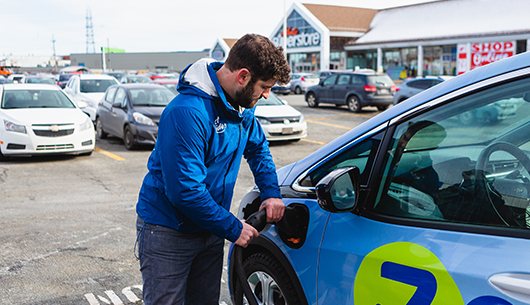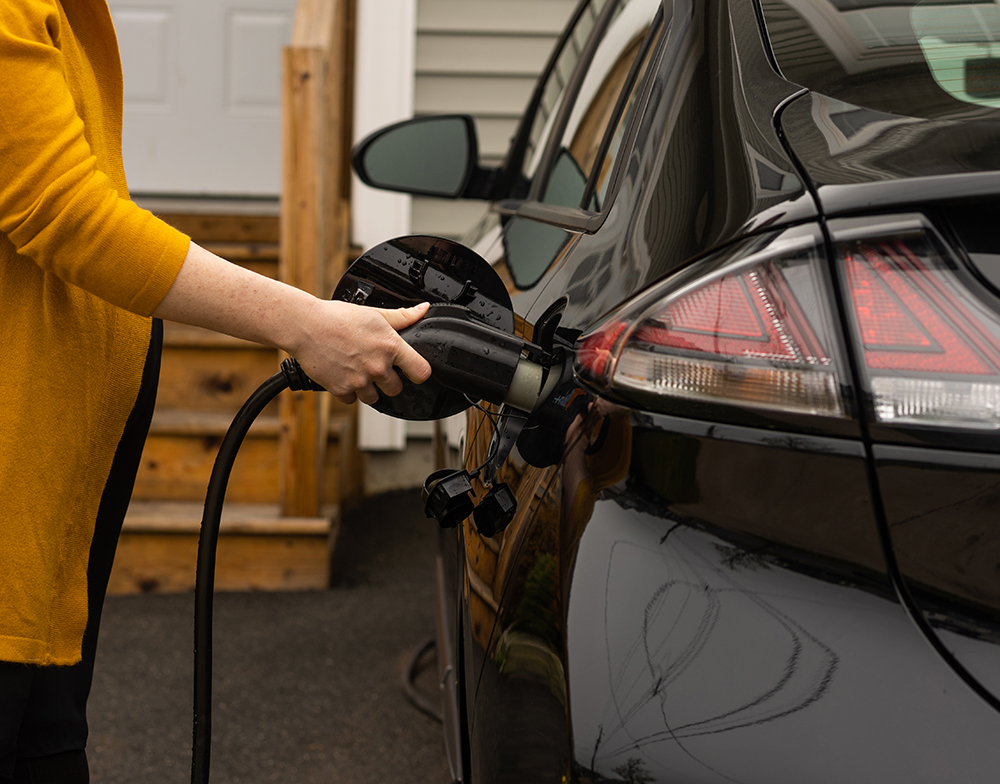Electric vehicles are part of the federally mandated Canada’s Zero-Emission Vehicle (ZEV) sales targets to reduce greenhouse gas emissions. That's why, we work with a variety of partners and customer groups to identify the barriers and provide solutions for electric vehicle adoption in our province.
We help support a variety of events across Nova Scotia to build awareness and growth of electric vehicle adoption. We also provide the charging infrastructure for electric vehicles, while making and delivering energy to support your vehicle needs.






